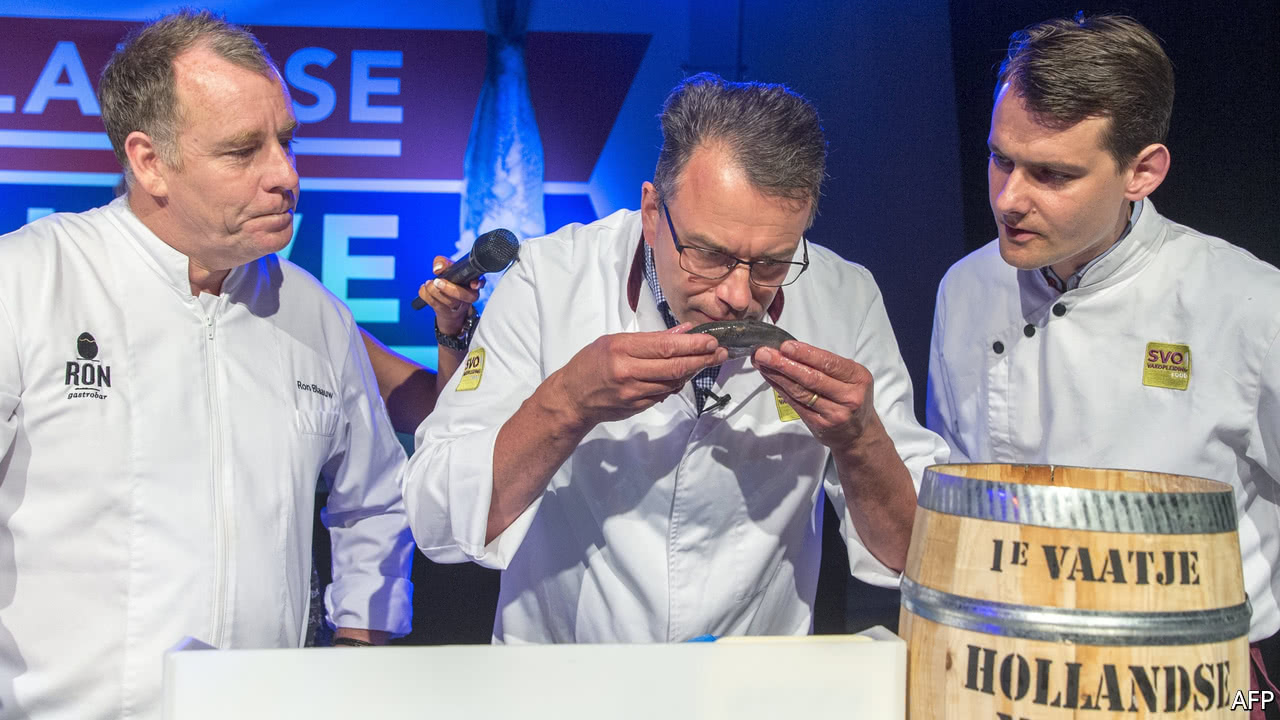
HERRING (genus Clupea, with four species found in the Baltic and North Seas) have been vital to northern Europe’s economy since the Middle Ages, when fishermen worked out how to preserve them in brine. Every north European country maintains that there is a right way to eat the fish, but they differ as to what it is. In Sweden Baltic surströmming are fermented until slightly rancid. In Denmark the sill are pickled, or cooked and eaten in long strips. In the Netherlands haring must be lightly salted for preservation but otherwise raw, dipped in minced onion and accompanied with a pickle. No food is more loved.
So the Dutch were shocked when accusations surfaced in November that there was something rotten about the national herring test. The test, sponsored by the Algemeen Dagblad, a newspaper, is carried out by two expert tasters, who each year rate the herring at over a hundred shops and stands across the country.
Ben Vollaard, an economist at Tilburg University, was surprised when his respected local fishmonger scored zero. The merchant told Mr Vollaard that one judge routinely tipped the scales, giving higher scores to stores that get their fish from the Atlantic Group, a distributor in Scheveningen. The judge happened to be a consultant for Atlantic, giving courses on how to slice and serve herring.
“I saw how much damage a low rating could do. The judges act like God,” says Mr Vollaard, who specialises in using statistics to detect crime. He decided to run the numbers. The ratings include objective criteria, like weight and fattiness, and subjective ones such as taste and appearance. The economist contacted 85% of the shops surveyed in the past two years and asked who their distributors were. He found that whereas the overall average score was 5.5, the average for those supplied by Atlantic was 8.7. The extra boost for the Atlantic stores came mainly from the subjective scores.
Mr Vollaard’s study has blown the lid off the sealed world of Dutch herring. Fishmongers who long suspected the judge of bias towards Atlantic now say the test is rotten. Two who received low ratings have vowed to sue the Algemeen Dagblad for defamation.
The judge and Atlantic say they have been smeared, and that the statistical evidence is a red herring. They say Mr Vollaard’s figures are off, and that their high scores are due to their superior fish. But the charges of belangenverstrengeling (conflict of interest) have left the test’s reputation for impartiality gutted.
http://www.economist.com/news/europe/21731656-can-dutch-still-trust-their-herring-tasters-netherlands-fishmongers-accuse-herring-tasters?